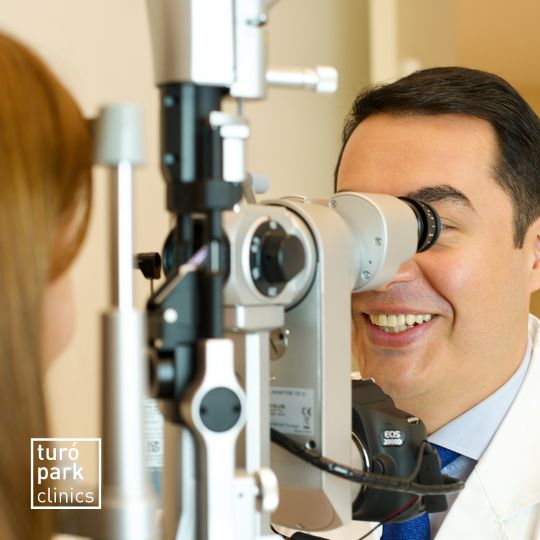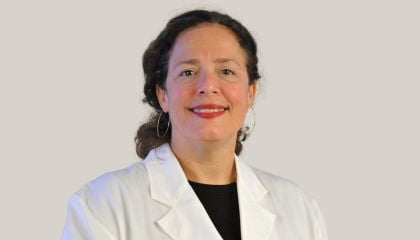Would you like to have an ophthalmic examination in Barcelona?
Even if you do not have any particular vision problems, it is recommended that you see an ophthalmologist every 2 to 3 years for an eye examination to assess your visual acuity and general health.
If you would like to have an ophthalmological check-up, do not hesitate to make an appointment with our specialist in Barcelona.
Treatment information
| Duration of treatment | 20 min |
|---|---|
| Recommended frequency | Each year |
| Results | Immediately |
| Age | From 10 y.o |
Fast track your treatment
To book an appointment or speak with one of our friendly team, please get in touch using the options below.

Why have an eye examination?
If you have the impression that your vision is not as good as it used to be, that you have to "force" yourself to read or if you notice the appearance of spots in your field of vision, you can have an ophthalmological examination to check the state of your vision.
If you have no particular symptoms, you can also consult an ophthalmologist to check your eyesight, especially if :
- Your work is tiring for your eyesight
- You have diabetes or high blood pressure
- You have a family history of glaucoma or AMD
- You are over 50 years old
When should an eye exam be carried out?
It is recommended that children have their first ophthalmological check-up before the age of 4, then every 2 years. From the age of 50, this examination should be carried out every year in order to detect certain pathologies that appear with ageing.
What tests does an eye examination consist of?
The examinations proposed as part of an ophthalmological assessment generally depend on the symptoms and family history of the patient. In any case, a check-up always starts with an interrogation of the patient, in order to establish the reason for the consultation, the circumstances and chronology of the symptoms and the history.
There are also several examinations that are systematically carried out during an ophthalmology consultation:
The visual acuity test measures the sharpness of your vision. To do this, the patient must read rows of block letters on an optotype hanging on the wall (Monoyer scale), the last letters of which are Z and U.
Visual acuity is measured by the ratio of the distance from the patient to the board to the distance at which the board is seen by a person with normal vision.
The ophthalmologist may also use an ophthalmoscope to examine the peripheral retina, the macula and the optic nerve. Depending on the case, this examination may sometimes require prior pupillary dilation using eye drops, the effect of which is temporary.
- Optical coherence tomography (OCT)
- Non-mydriatic retinography (NMR)
- Pachymetry
- Visual field examination
- High frequency ocular ultrasound (UBM)
- Retinal angiography
- IOLmaster biometry
- And many more...
How to prepare for an eye exam?
To prepare for your eye examination, remember to bring together the results of any previous eye examinations you may have had, as well as your prescriptions if you are taking specific treatments.
If you wear glasses, take them with you and don't forget your lens guarantee card, so that the specialist knows exactly which ones you use and with which correction.
If you come for a prescription renewal of your lenses, remember also to note the exact references of those you wear, as well as the product with which you care for them.
Finally, don't forget that if your check-up includes a fundus with pupil dilation, you will need to be accompanied by a relative or take public transport.
See life in colour!
Protect your eyes and avoid eye problems with professional care from Turó Park Clinics.

Our team of English-speaking ophthalmologists

